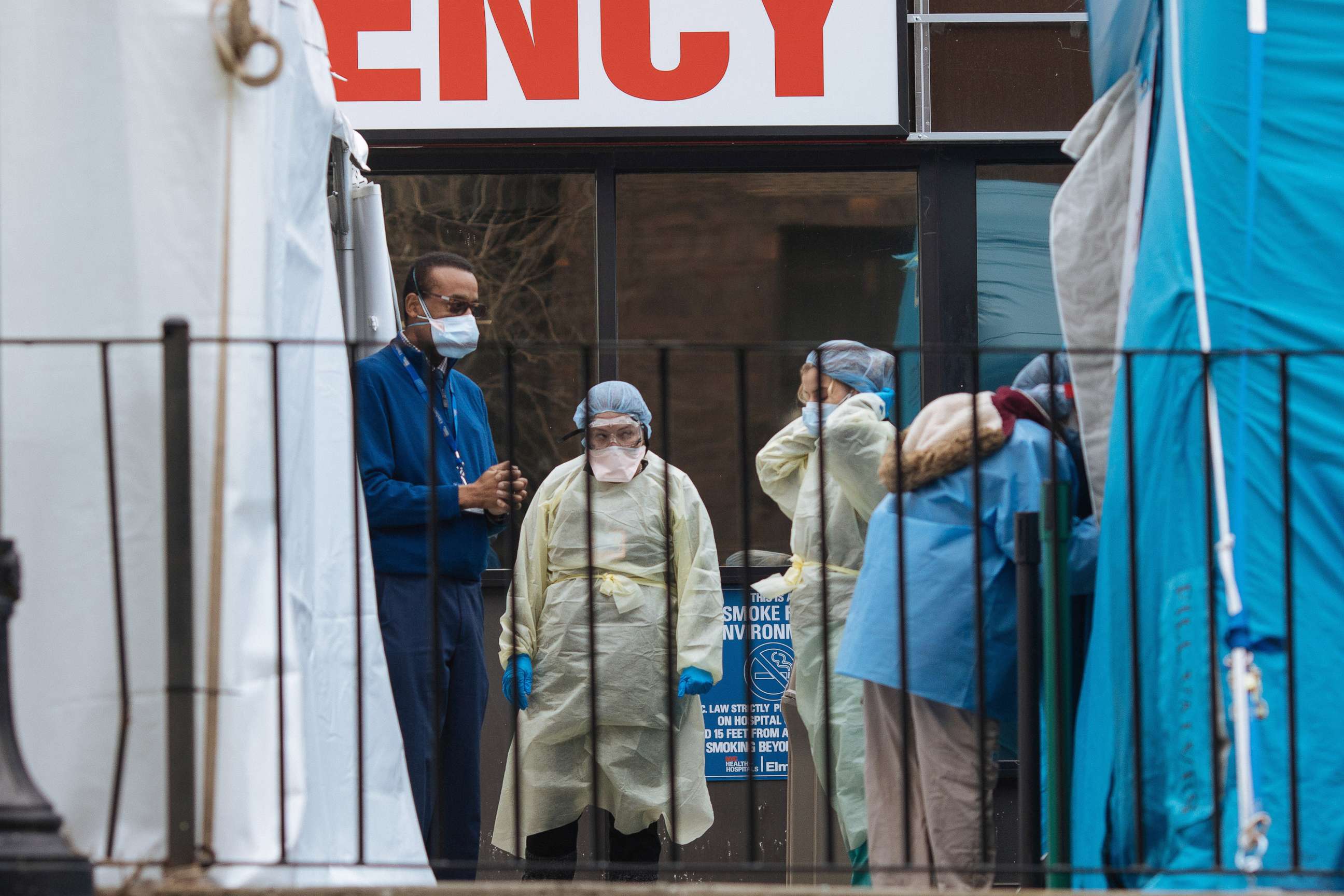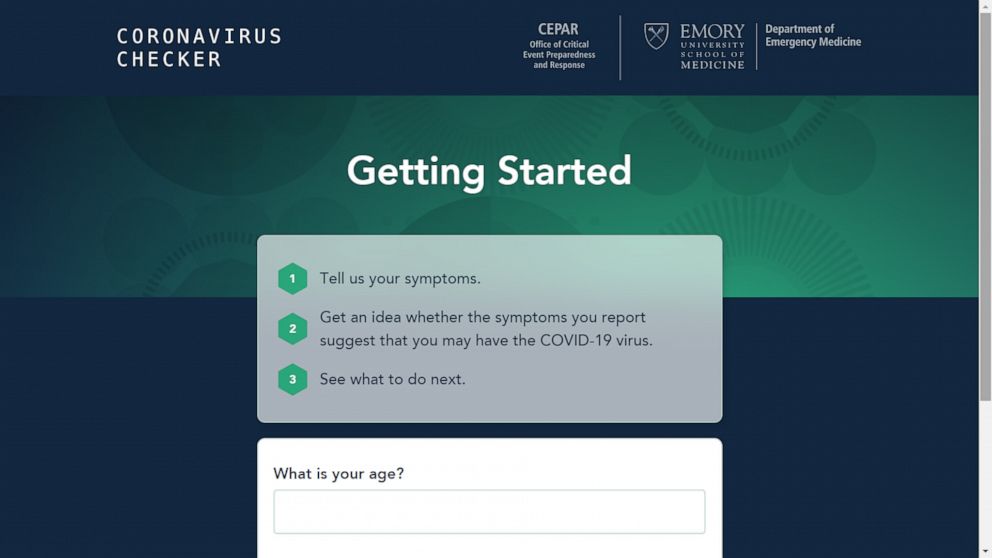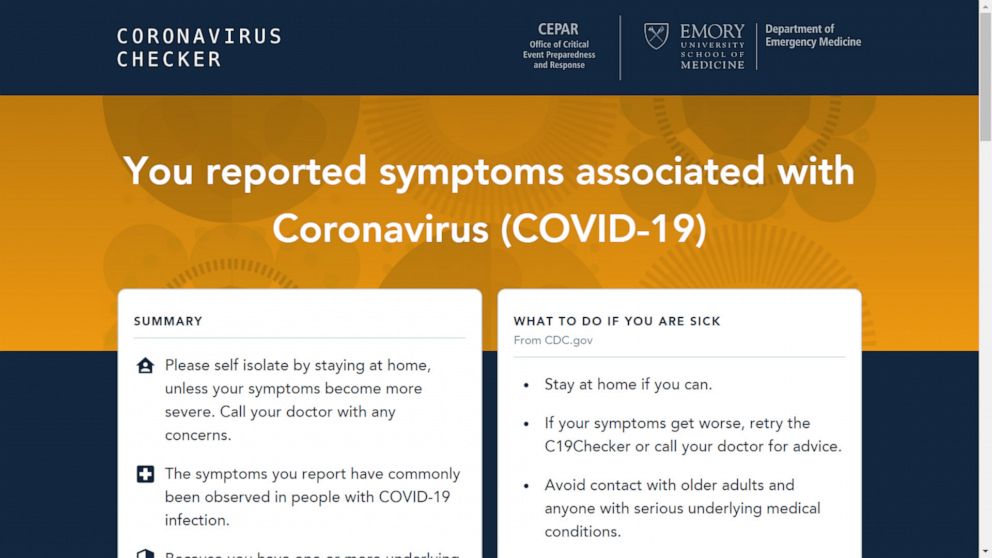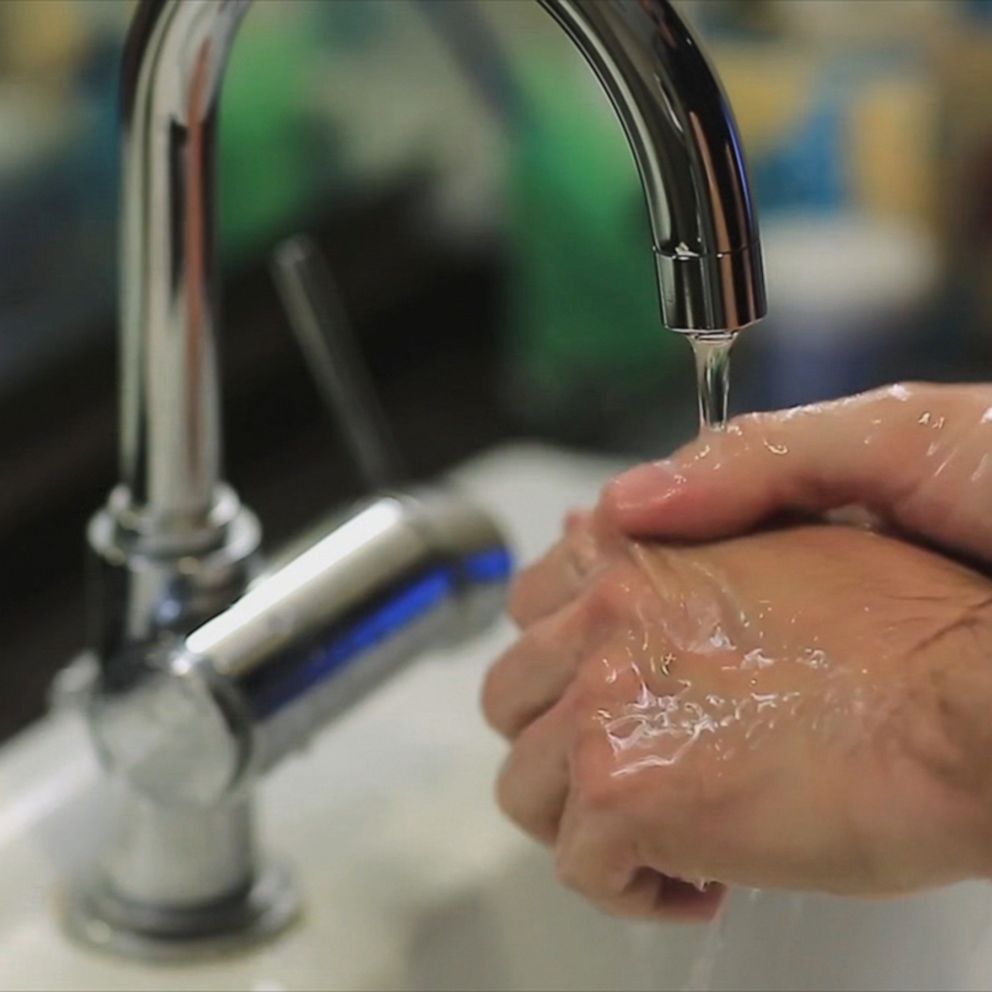What we're learning from online coronavirus screening project
About 20% of people using the tool reported severe symptoms.
With symptoms of the novel coronavirus overlapping with allergies, the common cold, influenza and asthma exacerbations, many wonder if their symptoms are COVID-19 and warrant a trip to the doctor's office.

To help the public gauge the seriousness of would-be COVID-19 symptoms, one group of doctors from the Emory University School of Medicine in Georgia, created an online tool, the Coronavirus Checker. It helps people decide if their symptoms call for immediate action.
Since it launched two weeks ago, 284,000 people have used the Coronavirus Checker tool -- generating valuable data about the symptoms many Americans are feeling while stuck at home.

By collecting data using an online tool, researchers can glean meaningful insights at lightning speed compared to a traditional research study.
"This is an educational tool that will help people self-navigate the huge amount of information available, to make it easy to understand and ultimately to streamline care," Alexander P. Isakov, MD, MPH, executive director of Emory University Office of Critical Event Preparedness and Response, said.
So far, about 20% of people using the tool reported severe symptoms -- about the same rate in China and elsewhere. People with severe symptoms including gasping for air or crushing chest pain were directed to emergency services.
According to the Coronavirus Checker, the most common COVID-19-related symptom is cough followed closely by sore throat and headache. Fever and cough, or fever and shortness of breath, are considered a strong match for the novel coronavirus. Symptoms such as diarrhea or sore throat are also associated with COVID-19, but are not considered strong matches alone. Interestingly, nearly 40% of people using the self-screening tool didn't have any of the symptoms currently associated with COVID-19.
"It is not a diagnostic tool. It is for educational purposes and not a replacement for a health care provider evaluation," Isakov said.

Dr. David Wright, chair of the department of emergency medicine at Emory University School of Medicine and his team of doctors said the Coronavirus Checker allows people worried they might have COVID-19 to check if they are at low, medium or high risk for severe coronavirus illness.
This tool, like others now available online including one from the CDC, Apple's COVID-19 screening tool and the COVID Near You site, can help bring direction to those wanting to self-triage at home, avoid unnecessary exposure to others and help temper the already overwhelmed health care system. However, seek medical care if there are any doubts.
Angela N. Baldwin, MD, MPH, is a pathology resident at Montefiore Health System in the Bronx and Delaram J. Taghipour, MD, MPH, MBA is a Preventive Medicine Resident at Johns Hopkins Bloomberg School of Public Health, both are contributors to the ABC News Medical Unit.
What to know about coronavirus:
- How it started and how to protect yourself: Coronavirus explained
- What to do if you have symptoms: Coronavirus symptoms
- Tracking the spread in the U.S. and worldwide: Coronavirus map







